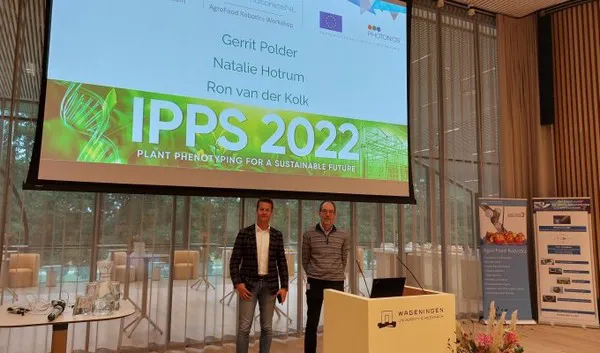Greenhouse horticulture already uses many sensors. But vertical farming, autonomous cultivation, and data-driven cultivation require equipment that is even more sensitive and accurate. Using photonics or optical technology makes it possible, for example, to detect diseases in crops more quickly and more accurately. Within the Agro Food Robotics program, the Greenhouse Horticulture and Flower Bulbs Business Unit of Wageningen University & Research are actively committed to the development of such sensors.
Photonics is still a fairly new field, but by now, many companies and organizations – including in the Netherlands and France – are active in the field of this technology. Among other things, they focus on the development of sensors based on 'photonics integrated circuits' (PICs).

Equipment using photonics has been around for a long time in agriculture and horticulture: for example, spectral cameras in sorting machines, drones, or mobile platforms are used to detect defects, diseases, or plant health. But more useful photonics applications for horticulture are conceivable. The question is: which applications and which technology is required for them?
Earlier this year, WUR researchers took part in a trade mission to France to explore collaboration with various companies within the Photonics cluster in Bretagne. In addition, WUR, together with The Hague University of Applied Sciences, Lentiz MBO Westland, and software company PerClass, is making an inventory of possible applications within the horticultural sector. A workshop on this will be organized in March 2023. This inventory is financed by Groenpact's Acceleration Programme Internationalization.
WUR also organized a workshop on the application of photonics in phenotyping during the International Plant Phenotyping Symposium in September.
At the last PIC Summit held in Eindhoven, WUR researchers played an active role by participating in a panel discussion on the application of photonics in AgriFood and chairing the Integrated Photonic Systems Roadmap International (IPSR-I) session for the development of PICs for this field. An active community of researchers is currently being established within WUR to further collaboration and knowledge exchange on photonics in the broad agri-food domain.
 For more information:
For more information:
Wageningen University & Research
www.wur.nl
